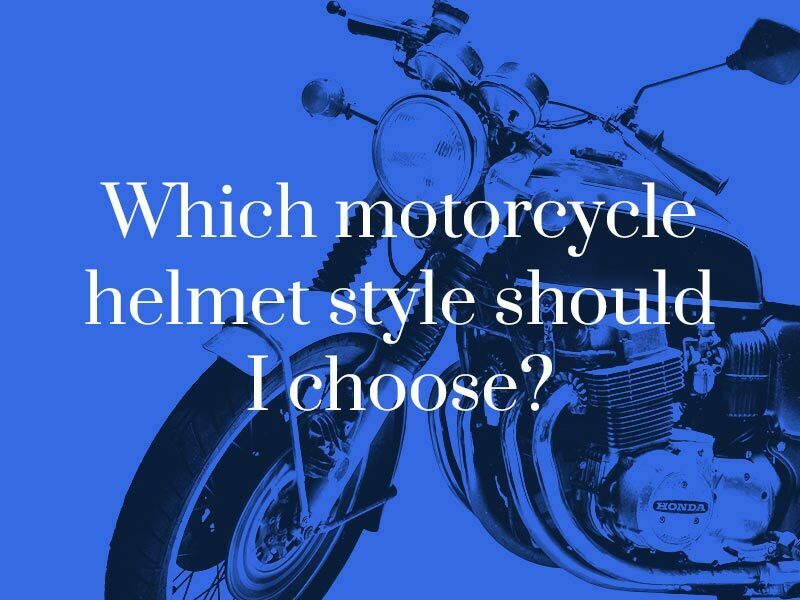Many riders do not realize it, but motorcycle helmet use and the type of helmet chosen is a critical and often contentious issue in motorcycle accident claims and suits. The state of New York has a universal helmet law, requiring all motorcyclists and passengers to wear helmets, regardless of age and experience. After a motorcycle accident, one of the first factors the insurance company will try to discern is whether or not you were wearing a helmet, as well as if it was certified by the U.S. Department of Transportation (DOT).

How Might the Type of Helmet Affect my Motorcycle Accident Injury Claim?
All motorcycle accident claims hinge on the concept of negligence, meaning the party that is proven to be negligent or at fault for the collision will typically be the one liable for paying damages. New York law requires motorcyclists to wear helmets that conform to DOT standards. Of the various types of helmets that are manufactured, such as a full face or brain bucket (half helmet), the actual style of helmet you choose to wear while riding will not affect the amount of compensation you receive in an injury claim as long as it is DOT approved. However, wearing a helmet that does not meet national safety standards can be considered evidence of fault or negligence.
How Do I Know if My Helmet is Up to DOT Standards?
Step 1 — Look for a “DOT” Sticker
All helmets that meet the safety requirements set by the DOT, must have a “DOT” sticker on the back of the helmet. Although, the sticker alone does not guarantee that the helmet is DOT certified, as many helmets have counterfeit DOT stickers.
Step 2 — Check the Interior
The interior of the helmet should have a thick inner liner that is about one-inch thick. The thickness of the inner liner may not be visible, but it can be felt with your hand. Oftentimes, non-DOT certified helmets will have an inner liner that consists of a thin sheet of foam or no liner at all.
Step 3 — Tug the Chinstrap
The chinstrap should feel solidly in place when tugged on, not loose or flimsy.
Step 4 — Weigh the Helmet
DOT certified helmets generally weigh three pounds. If it is one pound or less, it is unsafe.
Step 5 — Measure any Decorations
Helmets approved by the DOT do not have any adornments, such as spikes or horns, that extend further than one-fifth of an inch from the surface of the helmet.
Types of DOT Approved Helmets
The following basic styles are available with DOT certification:
- Full face: Completely covers the head, face, and the jaw. Although they may be considered the safest choice, many do not like wearing them as they are not fashionable with certain motorcycle styles and limit visibility.
- Modular (Flip-up): Resembles a full face helmet, except it has a two piece system, allowing the chin bar to slide up over the top of the helmet at the push of a button. Similar to the full face, the modular helmet is popular with sport bike riders, but is not favored by cruisers.
- Open face (¾ helmet): Covers the head, but not the face, therefore there is no eye protection.
- Half helmet (brain bucket): This type offers the least amount of coverage, leaving the lower part of the head and neck exposed. Brain buckets are not as safe as the previously mentioned helmets, however they are very popular. This is due to them being more comfortable and lighter, while offering the most visibility.
Wearing a DOT approved motorcycle helmet that best fits your riding style may not matter when it comes to an injury claim, but it will when it comes to your safety. Helmets saved approximately 1,859 lives in 2016, according to the Centers for Disease Control and Prevention (CDC).
Speak with Our Motorcycle Accident Lawyers
Even when motorcyclists take all necessary precautions, they can easily sustain injuries in an accident. If you or a loved one has been injured in a motorcycle crash, contact Sullivan Papain Block McManus Coffinas & Cannavo, P.C. An experienced NYC motorcycle accident attorney will help explain your legal options in a free consultation. Schedule one today by calling (212) 732-9000 or filling out our request form online.
